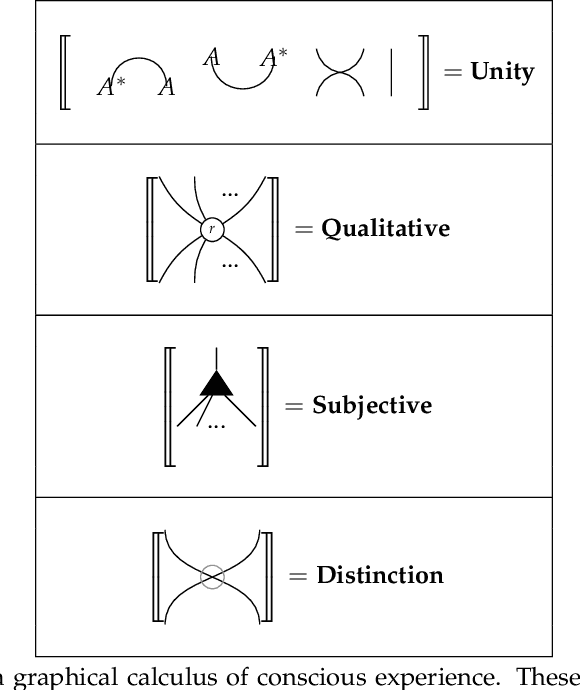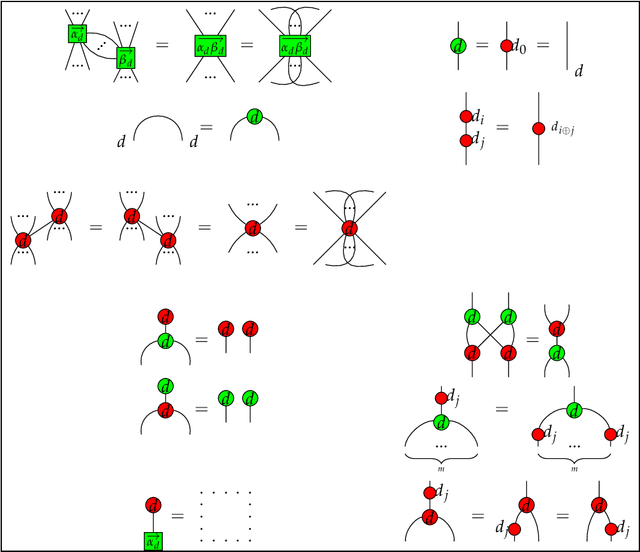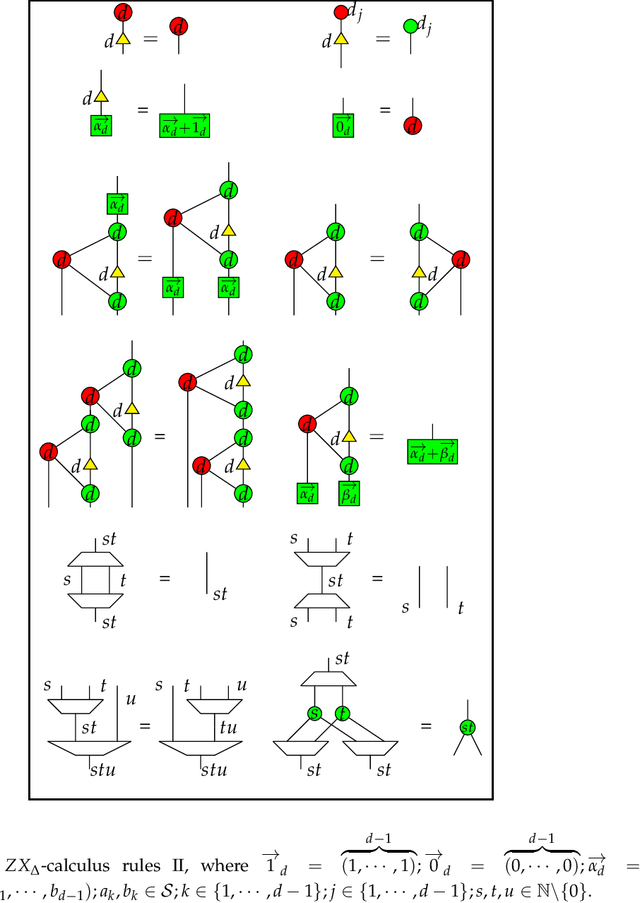Camilo Miguel Signorelli
Reasoning about conscious experience with axiomatic and graphical mathematics
Jun 30, 2021
Abstract:We cast aspects of consciousness in axiomatic mathematical terms, using the graphical calculus of general process theories (a.k.a symmetric monoidal categories and Frobenius algebras therein). This calculus exploits the ontological neutrality of process theories. A toy example using the axiomatic calculus is given to show the power of this approach, recovering other aspects of conscious experience, such as external and internal subjective distinction, privacy or unreadability of personal subjective experience, and phenomenal unity, one of the main issues for scientific studies of consciousness. In fact, these features naturally arise from the compositional nature of axiomatic calculus.
A Compositional Model of Consciousness based on Consciousness-Only
Aug 05, 2020


Abstract:Scientific studies of consciousness rely on objects whose existence is independent of any consciousness. This theoretical-assumption leads to the "hard problem" of consciousness. We avoid this problem by assuming consciousness to be fundamental, and the main feature of consciousness is characterized as being other-dependent. We set up a framework which naturally subsumes the other-dependent feature by defining a compact closed category where morphisms represent conscious processes. These morphisms are a composition of a set of generators, each being specified by their relations with other generators, and therefore other-dependent. The framework is general enough, i.e. parameters in the morphisms take values in arbitrary commutative semi-rings, from which any finitely dimensional system can be dealt with. Our proposal fits well into a compositional model of consciousness and is an important step forward that addresses both the hard problem of consciousness and the combination problem of (proto)-panpsychism.
Can Computers overcome Humans? Consciousness interaction and its implications
Jun 26, 2017
Abstract:Can computers overcome human capabilities? This is a paradoxical and controversial question, particularly because there are many hidden assumptions. This article focuses on that issue putting on evidence some misconception related with future generations of machines and the understanding of the brain. It will be discussed to what extent computers might reach human capabilities, and how it could be possible only if the computer is a conscious machine. However, it will be shown that if the computer is conscious, an interference process due to consciousness would affect the information processing of the system. Therefore, it might be possible to make conscious machines to overcome human capabilities, which will have limitations as well as humans. In other words, trying to overcome human capabilities with computers implies the paradoxical conclusion that a computer will never overcome human capabilities at all, or if the computer does, it should not be considered as a computer anymore.
Types of Cognition and its Implications for future High-Level Cognitive Machines
Jun 05, 2017

Abstract:This work summarizes part of current knowledge on High-level Cognitive process and its relation with biological hardware. Thus, it is possible to identify some paradoxes which could impact the development of future technologies and artificial intelligence: we may make a High-level Cognitive Machine, sacrificing the principal attribute of a machine, its accuracy.
 Add to Chrome
Add to Chrome Add to Firefox
Add to Firefox Add to Edge
Add to Edge